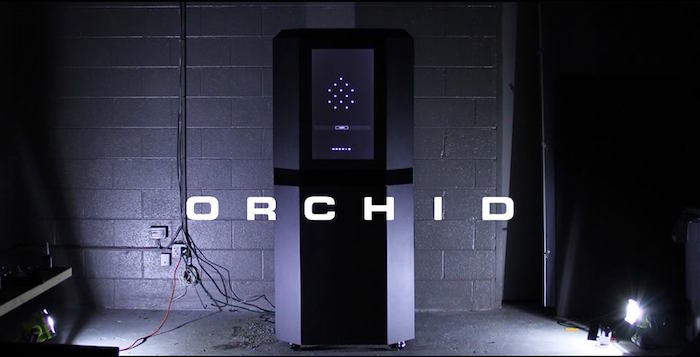Essentium, the 3D printer manufacturer behind the High Speed Extrusion (HSE) 3D printing platform, has signed a Letter of Intent to acquire Collider, the developer of the ‘Programmable Tooling’ hybrid additive manufacturing process.
Collider’s patent-pending technology combines DLP 3D printing with injection molding, providing industries like automotive, aerospace, medical, and manufacturing with an avenue for low-volume, high-strength part production. The acquisition will grant Essentium full access to Collider’s IP portfolio, enabling the company to make its debut in the resin-based DLP 3D printing market. Incidentally, Stratasys and Desktop Metal had the same idea late last year with the acquisition of Origin and EnvisionTEC, respectively.
Jeffrey Lumetta, Chief Technology Officer at Essentium, said, “Collider has a lot to bring to the table. Their innovative method of bringing together proven technologies to create high-value use cases has already proven their industry value. We see significant opportunities in tooling for low volumes of parts and the ability to manufacture geometrically complex, custom parts on-demand and quickly.”

DLP 3D printing with Collider
It’s not uncommon for manufacturers to be faced with the issue of late-stage product development, whereby low quantities of a specific part or tooling must be produced in a short space of time. At such low volumes, employing traditional manufacturing techniques like injection molding can be extremely costly, not to mention time-consuming.
To address this need, Collider’s Orchid DLP 3D printer works by fabricating a thin photopolymer shell, which is then injected with a filler material in-situ. After a round of post-processing, the shell is chemically dissolved and what’s left is an industrial-grade part that’s delivered in a matter of hours, rather than a matter of weeks.
Built with versatility in mind, the hybrid Orchid system is compatible with a whole host of high-performance thermosetting polymers and composites. This includes polyurethanes, silicones, epoxies, polyesters, foamed resins, carbon fiber composites, and even sintered metals and ceramics.
According to Collider, its technology delivers structural integrities comparable to those of conventional injection molding, with high resolution surface features and rapid printing times. Essentium has plans to take the process “to new horizons”, leveraging its background in materials science and 3D printing to improve both speeds and costs. Graham Bredemeyer, Collider’s former CEO, will sign on with Essentium as Director of the company’s Photopolymer Group.
Bredemeyer said, “Bringing Collider into the Essentium fold has hugely exciting potential for the industry as manufacturers want a more agile future enabled by AM. As part of Essentium we can open up 3D printing to off-the-shelf materials, fundamentally changing hardware development. Collider’s technology fuels the next wave of AM innovation by enabling mass customization and rapid product innovation.”
Consolidation in the 3D printing industry
Acquisitions like the Essentium-Collider deal certainly aren’t rare in the 3D printing industry. As the sector as a whole grows, more and more companies end up targeting similar client bases, and competition and the drive for innovation becomes rife. It follows that, much like any industry, the bigger fish eat the smaller fish and consolidation events like mergers and acquisitions become inevitable.
In fact, just this month, Desktop Metal’s healthcare subsidiary Desktop Health acquired the rights to a new 3D bioprinting technology. Named ‘PhonoGraft’, the platform is capable of printing the soft tissues that expedite the human body’s regeneration of the eardrum, potentially regenerating the aural tissues of hearing loss patients.
The same phenomenon can be seen among 3D printing service bureaus, with Groupe Gorgé, the parent company of Prodways Group, having just acquired 3D printing service provider Creabis. With a specialism in serial polymer production, Creabis is set to strengthen Groupe Gorgé’s Products division and enable the group to enter a new growing market in Europe.
The abundance of buyouts is undoubtedly also aided by the SPAC boom over the last year, with a record 248 SPAC IPOs taking place in the U.S. alone during 2020 (compared to 59 in 2019). 3D printing companies accounted for nearly $11 billion worth of these transactions, resulting in huge funding opportunities for the likes of Desktop Metal ($580M), Shapeways ($605M), and Markforged ($425M). With excess cash on the balance sheet, the opportunity for investment and subsequent growth presents itself on a platter.
Nominations for the 2021 3D Printing Industry Awards are now open, have your say in who is leading the industry now.
Subscribe to the 3D Printing Industry newsletter for the latest news in additive manufacturing. You can also stay connected by following us on Twitter, liking us on Facebook, and tuning into the 3D Printing Industry YouTube Channel.
Looking for a career in additive manufacturing? Visit 3D Printing Jobs for a selection of roles in the industry.
Featured image shows Essentium’s HSE 180-S 3D printer. Photo via Essentium.



